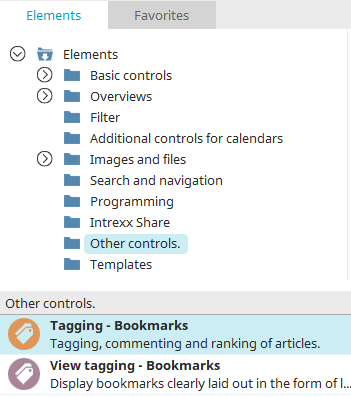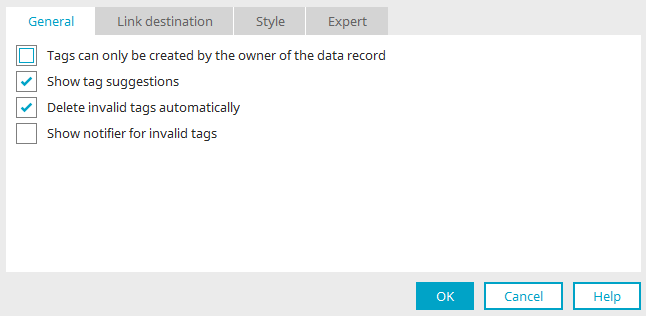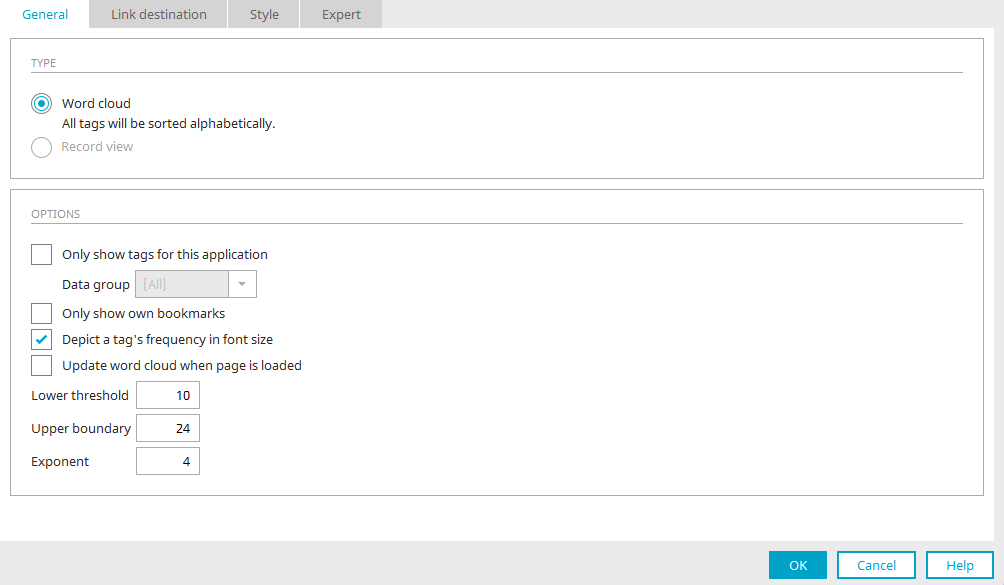Tagging bookmarks / Tagging bookmark view

The "Tagging - Bookmarks" input element can be used to set bookmarks for data records. In search configurations, you can activate a setting that tags should also be shown in the search results. Tags can be used as filters (e.g. for view tables) via a dependency.
With the "Tagging – Bookmark view" view element, existing tags can be displayed in a word cloud or on suitable pages as a data view. The "Tagging – Bookmark view" element also displays hashtags that have been entered and saved in a text field if the setting has been enabled in the properties dialog.
Both elements are part of the "Other controls" element category.
The tagging element can be found in the "Elements" section of the "Applications" module. A new element can be created by dragging and dropping it from here and positioning it in the workspace.
More information on creating elements can be found here.
The Element Properties dialog opens automatically when a new element is created. The properties dialog of an existing element can be opened by double-clicking on the element on the workspace, via the "Properties" context menu, or via the "Edit / Properties" main menu if the "Tagging" element is selected on the workspace.
Tagging bookmarks – General
The following settings can be found in the properties dialog of the "Tagging – Bookmarks" element:
Tags can only be created by the owner of the data record
This setting means only the owner of the data record can create tags. If this setting is not activated, only users with appropriate permissions can create tags.
Show tag suggestions
When text is entered in the element, a tooltip will display suggestions based on existing tags. Clicking on a suggestion will insert it as a tag.
Delete invalid tags automatically
A tag is invalid if characters that are neither letters nor numbers are used (i.e. special characters such as /, $, §, etc.). If this setting is activated, invalid tags are deleted when moving away from the tagging control.
Show notifier for invalid tags
This setting will display a notification explaining that a tag may only consist of letters and numbers.
Tagging Bookmark View – General
In the properties dialog of the "Tagging – Bookmark view" element, the element can be set as a word cloud or data set view. There are different options for this in the dialog:
Options – Word cloud
Only show tags for this application
If this setting is not activated, all tags will be displayed that have been created in the current portal. If the setting is activated, a data group can additionally be selected; the tags display will be limited to this group.
Only show own bookmarks
This setting will only show the bookmarks that you have entered.
Depict a tag's frequency in font size
Enlarges the font size if the tag is used on a regular basis.
Update word cloud when page is loaded
Refreshes the word cloud when the page is loaded.
-
Lower boundary
specifies the minimum font size for the word cloud entries.
-
Upper boundary
specifies the maximum font size for the word cloud entries.
-
Exponent
ensures that the entries are evenly distributed.
Options - "Record view"
Show tag suggestions
When text is entered in the element, a tooltip will display suggestions based on existing tags. Clicking on this suggestion will insert it as a hashtag.
Filter table with tags
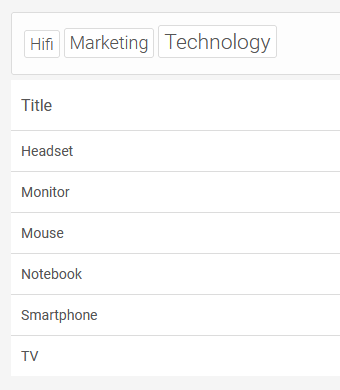
To filter a table with tags, create a tagging bookmark element on the page containing the table – as in the figure above, the "Tagging – Bookmark View", set as a word cloud.
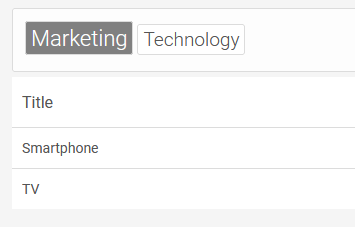
Click on one of the tags to filter the table accordingly.
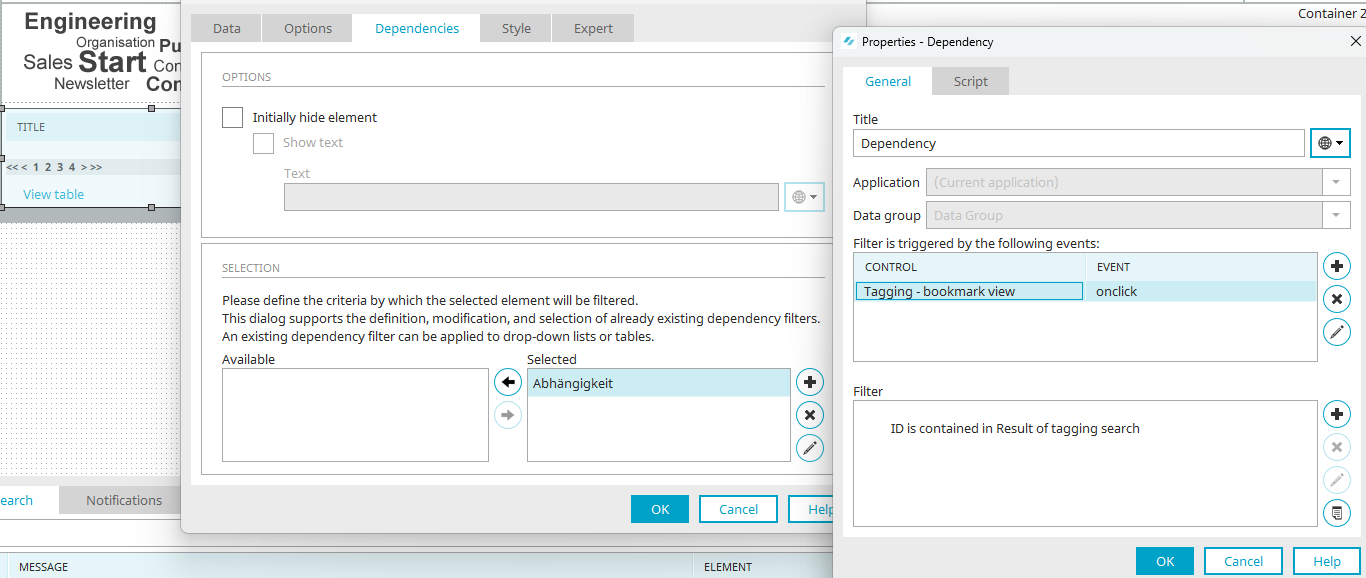
A link destination must not be set for the Tagging – Bookmark view element so that the table is filtered. In the table dependency, the element is defined as the triggering control with the "onclick" event.
Click on ![]() "Edit filter" to create the filter definition.
"Edit filter" to create the filter definition.
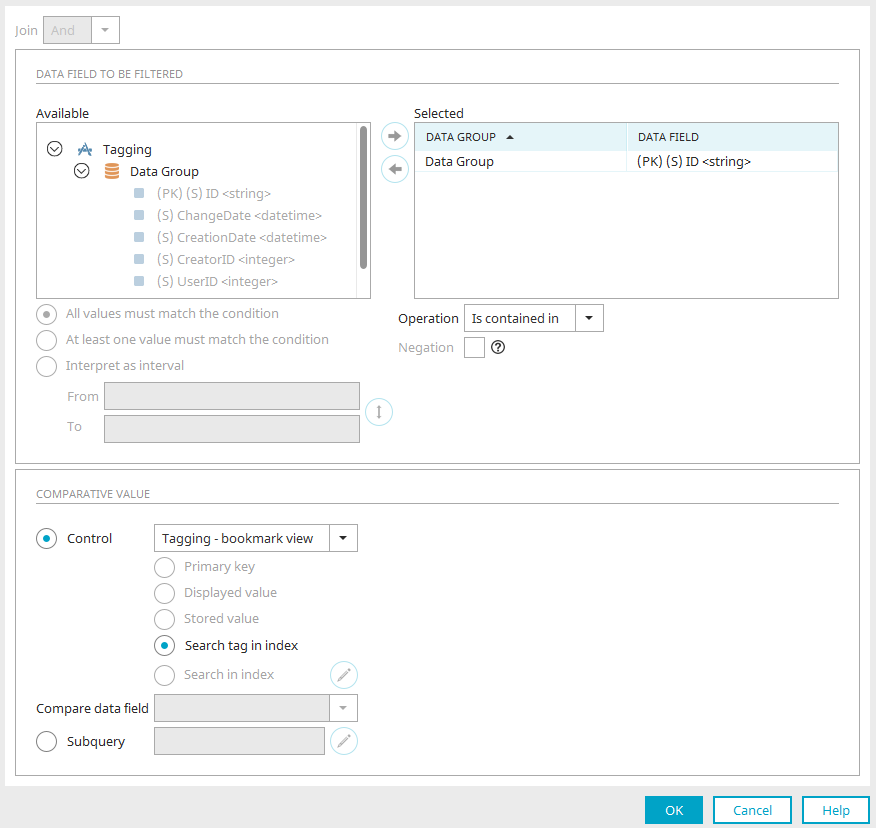
Select the primary key of the data group as the data field being filtered. Specify the operator and select the "Tagging – Bookmark view" element as a control. Set the "Tag search" option there.
The table is then filtered accordingly.
